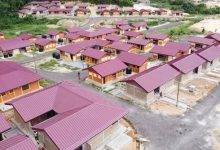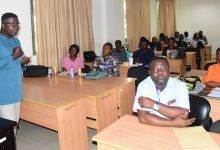
The National Disaster Management Organisation (NADMO) has commenced full scale simulation exercise as part of its capacity building and readiness to effectively respond to disasters, particularly flood.
The emergency preparedness plan(EPP) dubbed “Da woho so”, which being undertaken in collaboration with the Volta River Authority and the North Dakota National is to test the country’s readiness to deal with emergencies that cause the release of a significant quantity of water from the Akosombo and Kpong Dams.
Other key partners in this exercise include the Ghana National Fire Service, Ghana Police Service, the Ghana Navy, the Ghana National Ambulance Service and the Ghana Armed Forces.
At the opening ceremony yesterday in Accra, the Deputy Director –General of NADMO, SejiSajiAmedonu, said the exercise will be conducted in three potentially affected districts, Asuogyaman, Ada East and North Tongu.
He noted that Climate Change and its impacts were becoming evident in Ghana and the world at large, resulting in an increase in occurrences of national disasters.
“According to the World Banks Ghana Climate and Development Report 2022, flooding affects about 45,000 people in the country yearly and its effect of climate change was catastrophic and that the effect was increased frequency and magnitude of floods, which the Akosombo and Kpong were physically exposed to.
“Even though VRA has been excellent in maintaining and managing thetwo dams, it is necessary to prepare for the worst effects of climate change because it is estimated that over 300,000 people will be potentially affected and that the EPP is designed to provide early warning of any potential disaster and manage the response to minimize effects on life and property in communities downstream of the Akosombo and Kpong dams,” Mr Amedonu cautioned.
Recognising the importance of climate change to Ghana’s development, Director, Engineering Services, Kwaku Wiafe, stated that the government had developed the Ghana National Adaptation Plan, which had eight policy areas, two of which were building climate –resilient infrastructure and increasing the resilience of vulnerable communities to climate –related risks.
He commended all agencies involved in the exercise for the critical step in preparing for emergency and disaster management and expressed his appreciation to the North Dakota National Guard for their commitment to the exercise in respect of funds and human resources.
BY BENEDICTA GYIMAAH FOLLEY






